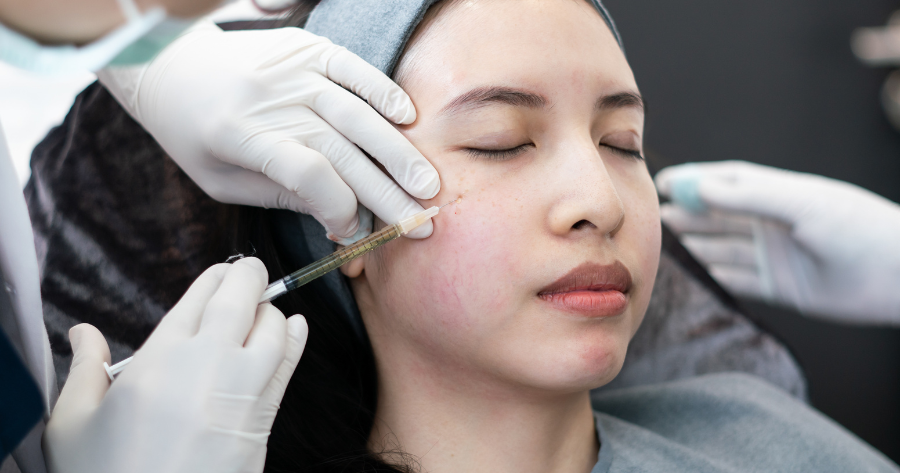Itchy, red, or irritated skin can be more than just a temporary nuisance—it might be a sign of a skin allergy. If you’ve been dealing with unexplained rashes, hives, or dryness, chances are your skin is reacting to something in your environment, your diet, or even your skincare routine.
The first step to relief? Identifying your triggers. Once you know what’s causing your reaction, avoiding it becomes much easier. Let’s break it down step-by-step, and explore how a skin allergy specialist or online treatment for skin allergy can make the process smoother and more effective.
What Is a Skin Allergy?
A skin allergy happens when your immune system overreacts to a substance that comes in contact with your skin. This can lead to symptoms like:
- Itching
- Redness or inflammation
- Dry, scaly patches
- Hives or rashes
- Swelling or blisters (in more severe cases)
There are different types of skin allergies, including:
- Contact dermatitis – triggered by direct contact with an allergen like soap, metal, or cosmetics
- Eczema (atopic dermatitis) – often linked to genetics, environmental allergens, or stress
- Hives (urticaria) – sudden itchy welts often caused by food, medication, or unknown triggers
Common Skin Allergy Triggers
Skin allergies can be caused by a wide variety of substances. Here are some of the most common triggers:
- Fragrances (in soaps, lotions, perfumes)
- Dyes and preservatives in cosmetics or detergents
- Nickel (often found in jewelry or belts)
- Latex (gloves, balloons, etc.)
- Certain plants (like poison ivy or oak)
- Pet dander or dust mites
- Foods (some can cause skin reactions, especially in children)
Since triggers can vary from person to person, working with a skin allergy specialist is the most effective way to figure out what’s causing your symptoms.
Also Read: Community Medical Jobs: Health Careers & Winnipeg Opportunities
How to Identify Your Triggers
Pinpointing what’s irritating your skin isn’t always easy, but there are a few reliable strategies:
1. Keep a Skin Diary
Track when symptoms occur, what products you’ve used, what you’ve eaten, and where you’ve been. Patterns may start to appear over time.
2. Patch Testing
A skin allergy specialist may recommend patch testing. This involves applying small amounts of suspected allergens to your skin under adhesive patches. After 48–72 hours, your doctor will assess any reaction.
3. Elimination Method
If you suspect a product or food is causing your symptoms, try removing it from your routine or diet one at a time and monitor your skin’s response.
How to Avoid Skin Allergy Triggers
Once you’ve identified your triggers, the next step is making changes to your lifestyle and environment. Here are a few simple but powerful tips:
- Choose fragrance-free products labeled “hypoallergenic” or “for sensitive skin.”
- Use gentle laundry detergents and avoid fabric softeners with heavy scents.
- Switch to nickel-free jewelry if you’re sensitive to metals.
- Keep skin moisturized to help maintain its natural barrier against allergens.
- Wear gloves when using cleaning products or washing dishes.
- Dust and vacuum regularly to minimize indoor allergens like dust mites and pet dander.
For people with chronic or recurring reactions, personalized care can make a world of difference.
Exploring Online Treatment for Skin Allergy
If visiting a clinic isn’t convenient, don’t worry—online treatment for skin allergy is now widely available. Through a virtual consultation, a board-certified skin allergy specialist can:
- Review your symptoms and medical history
- Help identify likely triggers
- Recommend patch testing or lab work, if needed
- Prescribe treatment plans, including creams, antihistamines, or lifestyle changes
- Monitor your progress remotely
This approach is especially helpful for people who live in remote areas or have busy schedules but still want expert guidance.
When to See a Skin Allergy Specialist
You should consider seeing a skin allergy specialist if:
- Your symptoms are frequent, severe, or getting worse
- Over-the-counter treatments aren’t helping
- You suspect a food or product is causing the reaction
- You want to identify specific triggers through testing
Early intervention can help prevent flare-ups and long-term damage to your skin.
Final Thoughts
Skin allergies can be frustrating and uncomfortable, but with the right knowledge and support, you don’t have to suffer in silence. Identifying and avoiding your personal triggers is the key to healthier skin—and it starts with guidance from a skin allergy specialist.
Whether you visit a clinic or choose online treatment for skin allergy, there are effective solutions available to help you feel confident and comfortable in your own skin again.


